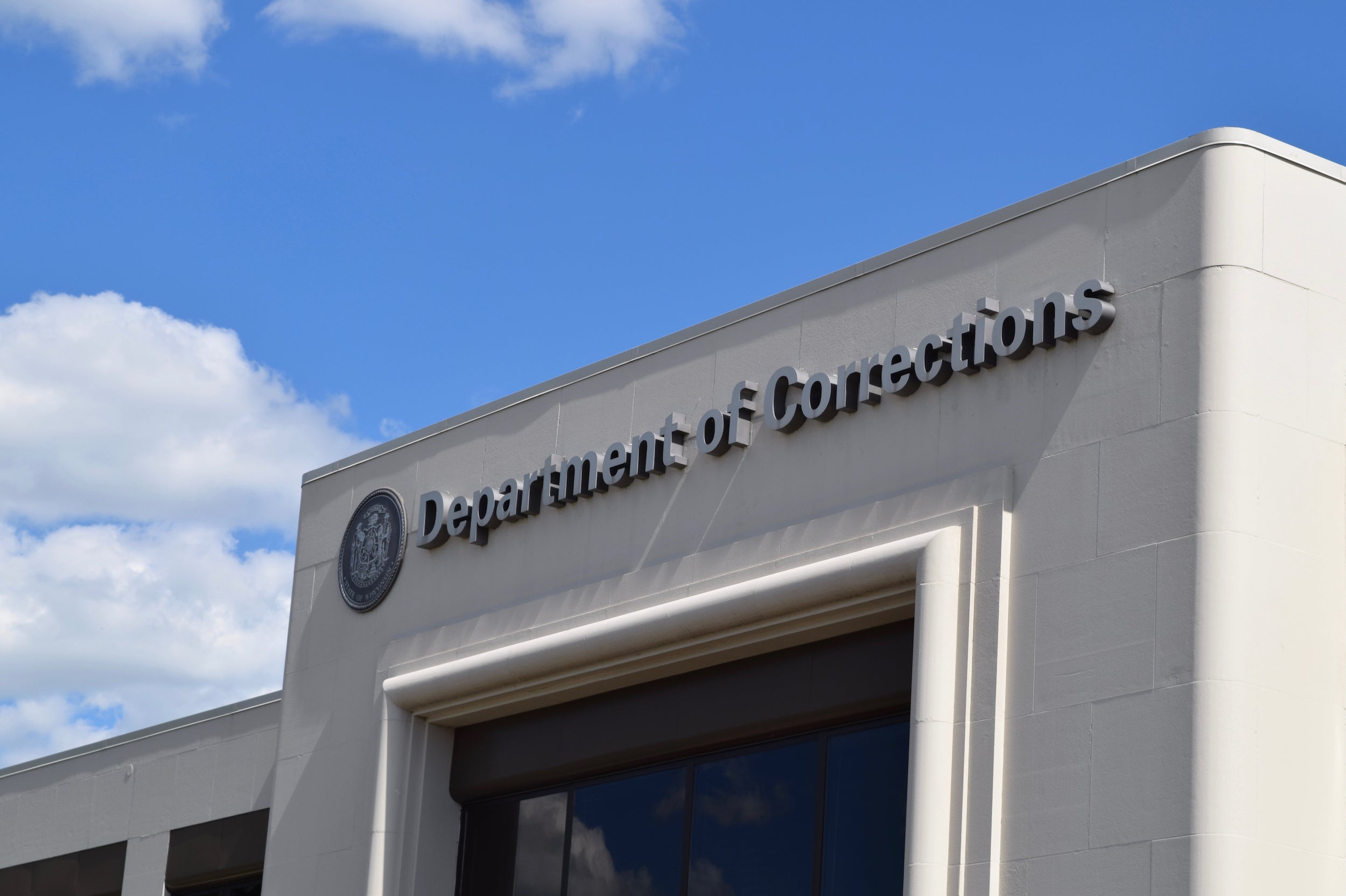Green Bay Correctional Institution now has the most COVID-19 cases of any state-run correctional facility after 258 inmates tested positive. More than a quarter of those incarcerated at the maximum-security prison have contracted the virus. Twenty-five staff have also tested positive.
The facility had no confirmed cases of the virus until Aug. 11, according to data from the Department of Corrections. The agency collaborated with the Wisconsin National Guard to conduct a second round of testing at the prison last week. So far, 29 inmates have recovered.
The outbreak is likely the result of the disease spreading from a staff member or an inmate who was recently admitted into the system, according to Gretchen Schuldt, executive director of the Wisconsin Justice Initiative.
Stay informed on the latest news
Sign up for WPR’s email newsletter.
“I think the more likely scenario is, given the outbreaks previously and near Green Bay, that a staff member brought it in or more than one,” said Schuldt.
Brown County, where Green Bay is located, has had 5,074 cases of the virus and the third highest rate of infections statewide as of Tuesday afternoon.
Communications from inmates at the Green Bay prison that have been shared with Schuldt underscore their fear of contracting the virus.
“People are getting sick around them. They can’t get out. Really, prisons are not a place where you can do social distancing,” said Schuldt. “So they’re afraid of getting sick. They don’t want to die in prison.”
The DOC did not immediately respond to questions about the source of the outbreak. But, a corrections spokesperson told the Green Bay Press-Gazette that it doesn’t speculate about the source since COVID-19 is so contagious.
The Wisconsin Justice Initiative is among groups that have been pushing DOC Secretary Kevin Carr and Gov. Tony Evers to reduce the prison population due to overcrowding, which can lead to efficient spread of the virus among inmates. DOC said it’s released more than 1,400 people from holds in jails. Few prison inmates have been released although groups argue Evers and Carr have the authority to do so. The agency has said it has limited authority to release those in custody.
Around 21,000 people were being held in Wisconsin adult correctional facilities as of Aug. 21, which is roughly 20 percent more inmates than they were designed to hold.
“This is going to be an ongoing, serious risk for the prison system in this state for months to come until there’s a vaccine and everybody in the system is vaccinated or has had the virus and recovered,” said Tim Muth, staff attorney for the American Civil Liberties Union of Wisconsin.
Muth said inmates have told him staff have been more consistent with wearing masks following Gov. Evers’ mask mandate. Schuldt added staff are often dealing with the same difficult conditions as inmates in prisons.
“So, if it’s too hot and you have a mask on, human reaction is going to be to take it off,” said Schuldt. “I don’t want to point fingers. I just want to get it fixed.”
The DOC finished its first round of COVID-19 testing at all 37 facilities on July 20. At the time, 296 cases had been identified with the majority of those stemming from an outbreak at Waupun Correctional Institution. The maximum-security prison had 228 inmates test positive for the virus after a doctor contracted COVID-19.
Now, cases have doubled as a total of 624 inmates have contracted the virus since corrections officials began testing — more than half of which have since recovered. Among staff, 190 employees have tested positive as of Tuesday afternoon although the majority have recovered.
More than 10 percent of inmates statewide are now under quarantine, which the DOC describes as separating and restricting inmates’ movements. Carr told WPR that they’ve taken a variety of steps to prevent the spread of the virus. Those include more frequent cleaning, use of personal protective equipment, temperature screenings, testing and moving people in cohorts.
Officials have said the agency will continue to test inmates when they’re admitted, transferred or released from the prison system in addition to when they show symptoms.
The ACLU’s Muth said the agency should continue testing all inmates.
“Widespread testing on a regular basis has to be a norm until we have the virus well under control throughout the state,” said Muth.
Schuldt also worries about the stress on staff, especially if employees must be quarantined.
“The people incarcerated and the staff who work there are human beings who deserve to be treated as such and deserve to be protected,” said Schuldt.
The DOC said in an update this month that it’s securing contingency plans for staffing and remote access to care if there’s a shortage of staff or providers.
Wisconsin Public Radio, © Copyright 2025, Board of Regents of the University of Wisconsin System and Wisconsin Educational Communications Board.




